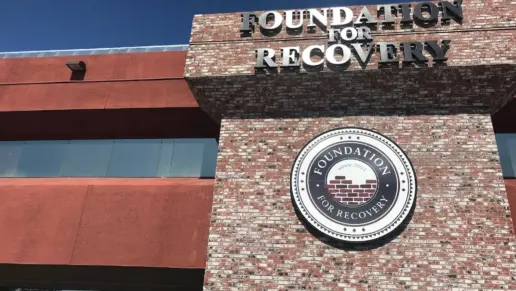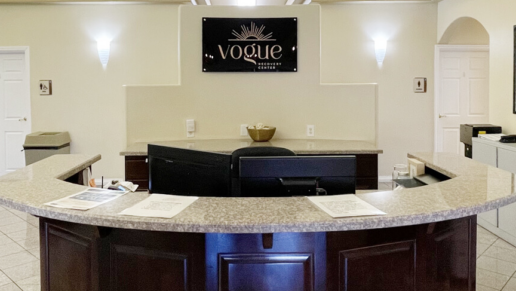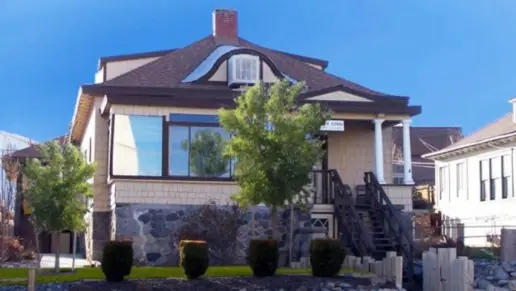About Crossroads of Southern Nevada
CrossRoads of Southern Nevada is a comprehensive mental health and drug and alcohol treatment center in Las Vegas, Nevada. They deliver personalized and comprehensive treatment services to adults regardless of their treatment history. They are a private facility with residential amenities. CrossRoads of Southern Nevada does not discriminate and offers services to clients regardless of background.
CrossRoads of Southern Nevada offers detox services in a safe, medically supervised environment for clients seeking treatment. During detox, clients receive various support services, such as therapy and case management, and staff are present 24 hours a day to help clients cope with withdrawal symptoms. Once a client’s system is clean of substances, they can proceed to the next step in their treatment plan.
Residential treatment is a high level of treatment designed for clients with severe disruptive symptoms. Clients reside on site during treatment in a restricted, carefully monitored environment designed to reduce the risk of relapse during treatment. This is a supportive community environment where staff are on hand 24 hours daily to help clients as needed.
The residential program at CrossRoads of Southern Nevada lasts 30 days. During this time, clients work alongside a care team to undergo assessment and participate in treatment, which takes place in individual and group therapy and education settings. Therapy seeks to uncover the roots of addiction and teach supportive coping skills.
Outpatient care typically follows the completion of the residential program, but it can also be used independently by clients considered low risk. During this day program, clients continue to live at home and visit the facility on a fixed schedule to meet with their care providers and engage in group and individual therapy. The outpatient program also provides medication management services as needed.
MAT is the combined use of approved symptom management medicine and therapeutic services. MAT is often used to treat opioid addiction to reduce or eliminate physical cravings. The medical team closely manages MAT to ensure clients’ safety.
CrossRoads of Southern Nevada’s transitional housing program gives clients a safe, sober living space for 60 to 90 days. It’s typically used following inpatient treatment and acts as a stepping stone between the program and a return to fully independent living. The transitional living house is less restrictive than inpatient residential care. Clients in the transitional housing program are also enrolled in outpatient services.
Facility Overview
Latest Reviews
Rehab Score
Gallery
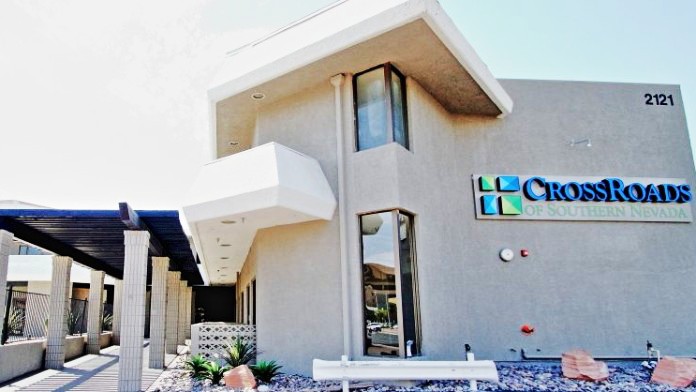
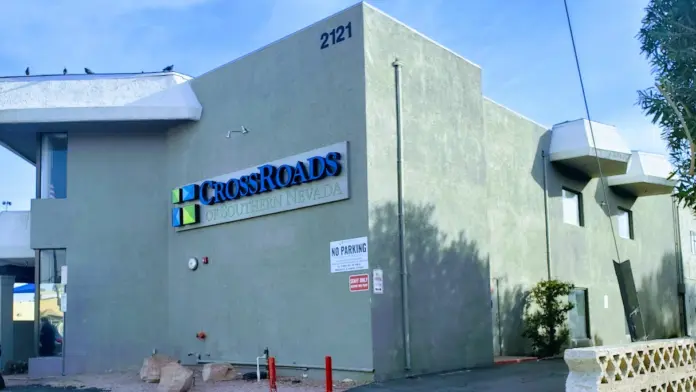
Location
Accepted Insurance
Other Forms of Payment
Self-pay involves paying for treatment out of your own pocket. You can use savings or credit, get a personal loan, or receive help from family and friends to fund your treatment. If you don't have insurance or your insurance plan doesn't cover a specific program, self-pay can help ensure you still get the care you need.
Medicaid is a state based program that helps lower-income individuals and families pay for healthcare. Medicaid covers addiction treatment so those enrolled can use their coverage to pay for rehab. When a program accepts Medicaid the client often pays very little or nothing out of their own pocket.
Addiction Treatments
Levels of Care
Programs

Clinical Services
Substance abuse counselors may apply cognitive behavioral therapy in Nevada during individual, family, or group sessions. Using a goal oriented approach, the therapist will help participants change negative thinking and behavioral patterns to address substance use and related challenges.
If you're experiencing substance use disorder, dialectical behavior therapy in Nevada can help you reduce cravings, learn healthier ways to manage stress, and avoid situations that can lead to substance abuse. Treatment includes one on one sessions with your therapist as well as group sessions to practice the skills you're learning.
Group therapy opportunities in Nevada allow you to see how successful recovery behaviors are modeled by your peers. You learn conflict resolution skills and are empowered to recognize your strengths and overcome your addiction.
Individual therapy provides you with a confidential setting to explore the complex factors that contribute to drug and alcohol addiction. Your therapist can provide tailored support and help you develop healthy coping strategies, improve self control, and build a foundation for sustainable sobriety.
Research shows that motivational interviewing is an effective approach for individuals who are unprepared for change. They may be resistant to change or simply insecure in their abilities to make changes. This therapeutic method allows clients to explore their options, reach their own conclusions, and feel empowered to make changes.
Trauma therapy uses trauma focused care to help you understand and manage your emotional and physical responses. Using therapeutic interventions, you learn to reframe the experience. This helps to reduce your anxiety and build your resilience to face future challenges and gain control over your life.
Sessions for couples therapy may involve joint meetings with the counselor as well as individual sessions. Between sessions, both partners are asked to do "homework," which involves practicing the insights and behaviors they learned about during therapy.
During family therapy sessions, your therapist facilitates discussions that help members of the family unit understand addiction and how it affects the entire family, providing you with coping strategies that help to strengthen the family unit.
A diet packed with nutrients is crucial for combatting addiction. The right foods give you the energy you need for success in therapy and daily tasks. Nutrition therapy during rehab will help you get these nutrients and learn how to follow a healthy dietary plan long term.
Using recreational therapy in a holistic addiction treatment program allows you to find joy and purpose within healthy activities. You might engage in group games, arts and crafts, and fitness programs that promote relaxation and physical health. These are essential for long term recovery.
Amenities
-
Residential Setting
-
Private Rooms
Staff & Accreditations
Staff
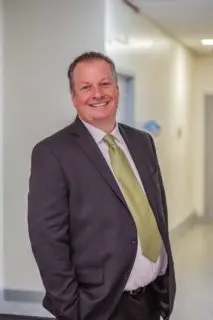
CEO

COO
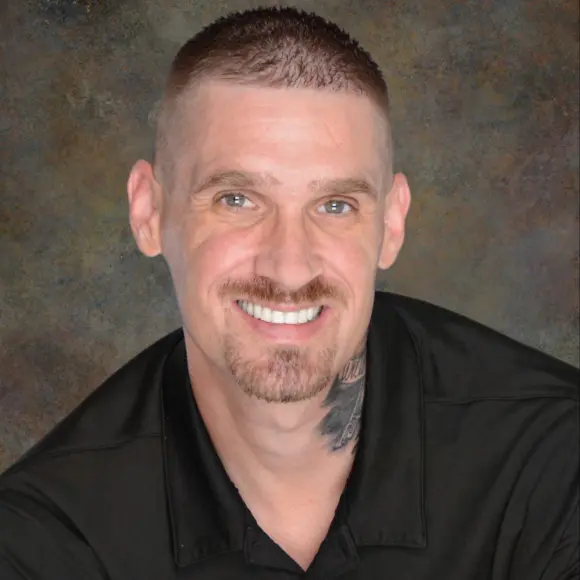
VP of of Programs

Program Director
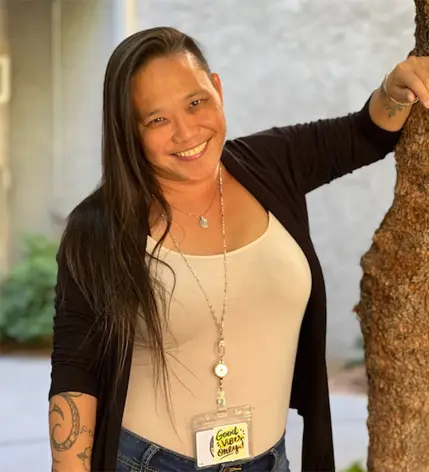
Manager of Operations
Accreditations

The Joint Commission, formerly known as JCAHO, is a nonprofit organization that accredits rehab organizations and programs. Founded in 1951, the Joint Commision's mission is to improve the quality of patient care and demonstrating the quality of patient care.
Joint Commission Accreditation: Yes
Contact Information
2121 W Charleston Blvd
Las Vegas, NV 89102






